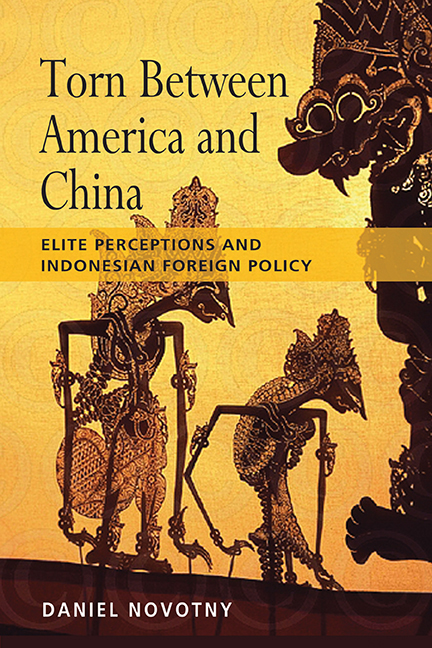Book contents
- Frontmatter
- Dedication
- Contents
- Foreword
- Preface
- List of Figures
- Acknowledgements
- PART I THE CONTEXT
- 1 Introduction
- 2 The Power of Perceptions
- 3 The Foreign Policy Elite and Indonesia's National Interest
- PART II THE PERCEPTIONS “ANTARA DUA KARANG”
- PART III ELITE CONSENSUS AND POLICY OUTCOMES
- Glossary
- Abbreviations
- Bibliography
- Index
- Note on the Author
3 - The Foreign Policy Elite and Indonesia's National Interest
from PART I - THE CONTEXT
Published online by Cambridge University Press: 21 October 2015
- Frontmatter
- Dedication
- Contents
- Foreword
- Preface
- List of Figures
- Acknowledgements
- PART I THE CONTEXT
- 1 Introduction
- 2 The Power of Perceptions
- 3 The Foreign Policy Elite and Indonesia's National Interest
- PART II THE PERCEPTIONS “ANTARA DUA KARANG”
- PART III ELITE CONSENSUS AND POLICY OUTCOMES
- Glossary
- Abbreviations
- Bibliography
- Index
- Note on the Author
Summary
INTRODUCTION
In this chapter, we will focus on the concept of the Indonesian foreign policy elite whose perceptions are the focal point of this study. There are two terms in the Indonesian language that describe the country's elite. Pejabat is a broad term that refers to officials occupying all levels — the lower ranks up to the top ranks — of the government bureaucracy. The term elit has similar meaning as the same term in the English language — in Indonesia it is used to describe the most prominent businessmen, military leaders and policy-makers in the bureaucratic hierarchy along with the most influential journalists and intellectuals who maintain close ties with the political establishment.
The existing studies that deal with the “foreign policy elite” look particularly at the issues of elite identity, sources of diversity in the power elite, and the correlation between the elite worldview and the concept of national interests and security. The following discussion will highlight the inherently ambiguous nature of the concept of Indonesia's national interests and security. We will see that the Indonesian elite encompass a variety of diverging views over what actually constitutes and how to defend Indonesia's national interests. The Indonesian elite have been subject to a diversity of ideational influences, which in turn gave rise to a plurality of disparate views and attitudes among the leadership. In contrast to the earlier Sukarno and Suharto regimes, the contemporary Indonesian foreign policy-making is determined by democratic political processes with the direct and indirect participation of a sheer variety of stakeholders who are involved in constant mixed-motive bargaining.
ELITE PERCEPTIONS AND THE CONCEPTION OF NATIONAL INTERESTS AND SECURITY
In general, “national interest” as a concept essentially refers to a goal or set of goals of foreign policy that are universal and static, yet, in the case of any particular state, the actual national interest is both specific and dynamic. It is imperative for a state's elite involved in foreign policy-making and implementation to agree on and formulate a broad end or goal — “national interest” — that will provide a long-term sense of purpose and direction to foreign policy.
- Type
- Chapter
- Information
- Torn between America and ChinaElite Perceptions and Indonesian Foreign Policy, pp. 61 - 100Publisher: ISEAS–Yusof Ishak InstitutePrint publication year: 2010

